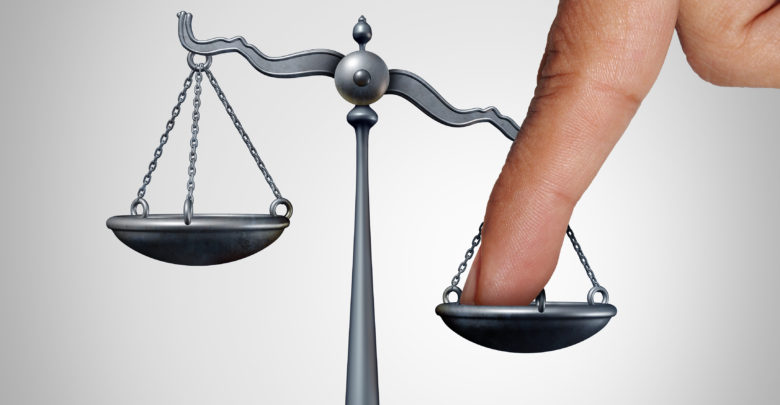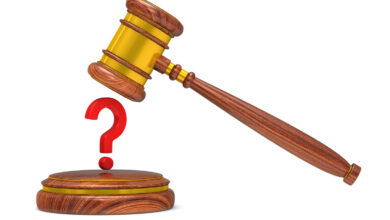Trump and Cipollone’s Made-Up Defense of Stonewalling Is a Fraud

Donald Trump’s sweeping attempt to prevent witnesses from testifying before the House committees conducting impeachment inquiries is an act of lawlessness. Full stop.
In theory, there’s nothing wrong about a president pushing back against congressional encroachments into legitimately perceived executive authority.
But there’s a difference between protecting executive turf and stonewalling.
And Trump has crossed that line, by a mile.
Trump’s supposed justification for ordering his entire administration to resist all congressional attempts to obtain their testimony and documents is contained in a letter from White House Counsel Pat Cipollone to Congress. Cipollone’s position is clear and unqualified: “President Trump and his Administration cannot participate” in the congressional impeachment inquiries.
Read “cannot participate” to mean that the entire Trump administration is being ordered by the president to refuse to testify or provide documents to Congress.
Cipollone’s 8-page letter is more political screed than legal brief. Much of it makes purely political arguments that Trump hasn’t done anything wrong, that he doesn’t deserve to be impeached, and that the inquiry is driven by political motives. That’s fine, so far as it goes. Cipollone is entitled to his political opinions.
But this isn’t about political opinions. It’s about the law.
Cipollone’s legal argument, such as it is, has two prongs:
(1) The inquiry is “constitutionally invalid” because the full House hasn’t voted to authorize it; and
(2) The inquiry violates Trump’s due process rights to cross-examine witnesses, call witnesses, and present evidence.
Let’s take these one at a time:
This “constitutional-validity” argument is simply made up.
There is nothing whatsoever in the U.S. Constitution requiring the full House to vote on an impeachment inquiry (as opposed to passing articles of impeachment), and Cipollone doesn’t cite a single provision of the Constitution—or even a single statute, or court decision, or even a dodgy law-review article in support of his proposition.
The fact that Congress passed resolutions at the start of the Johnson, Clinton and Nixon impeachments doesn’t make it law. Congress makes its own rules, and it has never made a rule (much less enacted a law) requiring a full House vote to start an impeachment inquiry.
The due process argument is just as bad.
Cipollone understandably cites no authority of any kind in support of an argument that the target of an impeachment investigation has due process rights to call and cross-examine witnesses or present evidence during the investigation phase of the inquiry (as opposed, of course, to the trial phase, should the inquiry ever reach that point).
The failure to cite any authority requiring such rights is not a matter of negligence on Cipollone’s part. He doesn’t cite any such authority because there is none.
The very idea that targets have a right to fully participate in investigations of their own misconduct is laughable. Such rights are unheard of—whether the investigation is conducted by Congress, regulatory agencies, or law enforcement. Indeed, in many cases, the targets of law enforcement investigations don’t know that an investigation is being conducted, much less have an opportunity to participate in it.
***
Instead, Cipollone cites two cases that stand for nothing even close to what he is advocating.
The case of Watkins v. United States is cited in his letter for the broad proposition that “due process protections apply to all congressional investigations.”
Whatever Watkins may stand for, it isn’t that the target of an impeachment inquiry has a right to call and cross-examine witnesses.
Watkins is somewhat of an outlier case. Decided in 1957, shortly after the heyday of Joe McCarthy and the House Un-American Activities Committee, Watkins overturned a conviction for contempt of Congress of a witness who refused to answer certain questions posed by HUAC.
The statute under which the witness had been convicted made it a misdemeanor for any person summoned before a House committee to refuse to answer a question “pertinent to the question under inquiry.” The court, clearly looking to wash its hands of the McCarthy era, found that since the witness could glean no clear understanding of the “question under inquiry,” he could not be convicted for his refusal to answer questions.
While the court’s decision was framed in part in due process language, the rights involved were those of a witness, not a target. And they had nothing to do with calling or cross-examining witnesses—the supposedly fatal flaw relied upon by Cipollone. And, obviously, they had nothing to do with impeachment.
Moreover, practically the first words in Chief Justice Warren’s opinion in Watkins distinguished the case, in which the witness had respectfully declined to answer only certain specific questions, from a case where a witness refuses to answer any questions, a la Trump: “It is not the case of a truculent or contumacious witness who refuses to answer all questions or who, by boisterous or discourteous conduct disturbs the decorum of the committee room.”
So, if at some point a witness in the Trump impeachment inquiry is convicted of contempt of Congress for refusing to answer specific questions, and if that witness can establish that he or she was unable to glean that the “question under inquiry” was Trump’s impeachment (although how that could possibly happen eludes me) then maybe that witness could rely on the Watkins case on appeal.
But that has absolutely nothing to do with Trump’s blanket stonewall of Congress.
***
The second due process case cited by Cipollone, Hastings v. United States, is equally unhelpful to Trump’s argument.
Cipollone cites the Hastings case for the proposition that “it has been recognized that the Due Process Clause applies to impeachment proceedings.”
The key word here, of course, is “proceedings.”
The Court’s decision in Hastings overturned the conviction and removal after trial from the bench of a federal judge, Alcee Hastings. In that case, after articles of impeachment had been voted by the House, Hastings was convicted and removed by a special “Impeachment Trial Committee” of the Senate, not by a vote of the full Senate.
The court’s straightforward ruling was that a federal judge cannot be tried and removed by a committee consisting of less than the full Senate.
So yes, Hastings stands for the proposition that due process applies to an impeachment “proceeding,” but only when the proceeding in question is a trial. It has absolutely nothing to do with imagined rights to call and cross-examine witnesses during the investigation phase, before anybody has even decided to bring charges.
It is difficult to believe that Cipollone’s legal arguments are being made in good faith. They are not debatable, or matters of interpretation. They are just wrong. A first-year law student would know better than to cite either of the cases Cipollone cites in support of an argument that a president has a constitutional right to participate in impeachment proceedings while they are still in the investigation/inquiry phase.
Trump’s order preventing witnesses from testifying before Congress has no legal justification. It is stonewalling and obstruction, pure and simple.
Congress should treat it as such.




